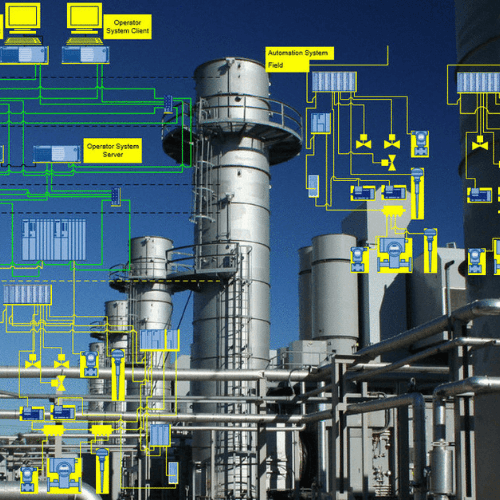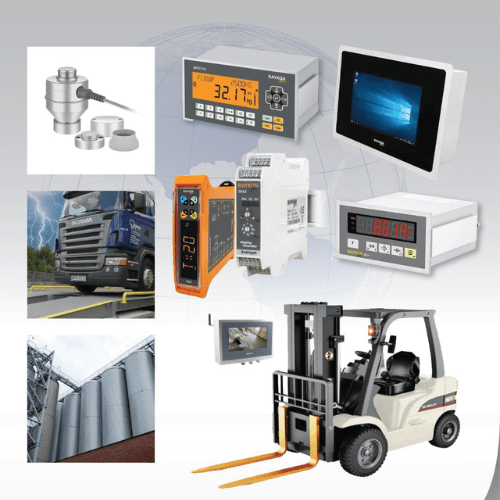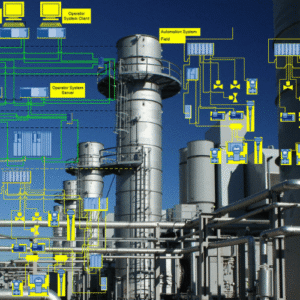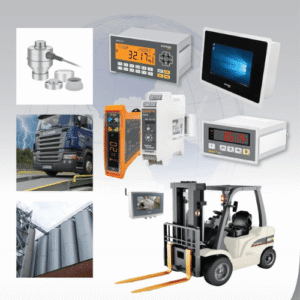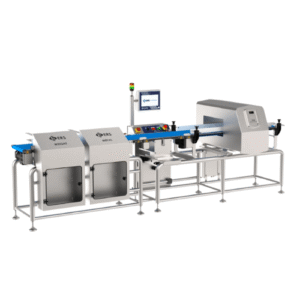Over the past few years, Egypt and the Arab world have witnessed a major industrial transformation. Industrial automation has become one of the key pillars shaping this change — not as a luxury, but as a necessity for efficiency, quality, and competitiveness.
It is the revolution that’s redefining how factories operate, making production faster, smarter, and more sustainable across the region.
What Is Industrial Automation?
Industrial automation refers to the use of smart systems, sensors, control units, robotics, and artificial intelligence to perform production processes automatically, with minimal human intervention.
Its main objectives include:
-
Achieving consistent quality and precision
-
Increasing production speed
-
Reducing human error
-
Lowering operational costs
-
Enhancing workplace safety
Today, automation is used across nearly all industries — from food and beverage and pharmaceuticals, to engineering, packaging, and heavy manufacturing.
Automation in Egyptian and Arab Industries
Manufacturers in Egypt and the wider Arab world are increasingly realizing that automation is the key to staying competitive both locally and globally.
Traditional production methods are no longer sufficient to meet the growing demands of efficiency, cost control, and product quality.
On the other hand, factories that adopted automation systems have achieved remarkable improvements in productivity, precision, and reliability.
Some of the most common applications in the region include:
-
Smart packaging lines equipped with Metal Detectors and Check Weighers to ensure quality control.
-
Automatic multihead filling systems that deliver precise and fast product handling.
-
Industrial monitoring and control systems that allow real-time tracking of production and instant data-driven decisions.
Key Benefits of Industrial Automation in the Arab Region
-
Higher Productivity:
Automation allows continuous operation 24/7, increasing output and reducing delivery times. -
Improved Product Quality:
Advanced sensors and control systems guarantee high consistency and compliance with standards. -
Reduced Costs:
By minimizing labor dependency and material waste, automation reduces long-term production costs. -
Enhanced Safety:
Machines perform the most hazardous tasks, reducing workplace injuries and improving safety standards. -
Digital Transformation:
Automation is the foundation of Smart Factories, where data analytics and connectivity drive every production step.
A Vision for the Future: Industry 4.0 in Egypt and the Arab World
Egypt and many Arab countries are now moving toward the vision of Industry 4.0, the fourth industrial revolution that integrates automation, artificial intelligence, and the Internet of Things (IoT).
The Egypt Vision 2030 initiative supports digital transformation in the industrial sector, encouraging manufacturers to adopt advanced technologies — particularly in packaging, filling, and processing systems.
Similarly, countries such as the UAE, Saudi Arabia, and Qatar are becoming regional hubs for industrial innovation and smart manufacturing.
Automation in the Packaging and Filling Industry
The packaging and filling sector is one of the biggest beneficiaries of automation in Egypt and the Arab world.
Modern production lines now rely on:
-
Automatic filling machines for speed and accuracy
-
Metal Detector systems to ensure product safety and compliance
-
Check Weigher systems for precise weight verification
-
Digital control systems that record production data and ensure seamless operation
These advanced solutions have enabled regional manufacturers to enhance product quality, increase efficiency, and expand exports to international markets.
Challenges Facing Automation in the Region
Despite its many advantages, automation still faces some challenges in Egypt and the Arab world, such as:
-
High initial investment costs in technology and equipment
-
Shortage of skilled technical professionals specialized in automation systems
-
Limited awareness among some factory owners of the long-term benefits of automation
However, these barriers are gradually being overcome through government initiatives, training programs, and partnerships with international technology providers.
Conclusion
Industrial automation is no longer an option — it’s a strategic necessity for any factory aiming to grow, compete, and meet modern market demands.
As Egypt and the Arab world continue their journey toward digital transformation and sustainable industrial development, automation stands as the gateway to a smarter, safer, and more productive future.

